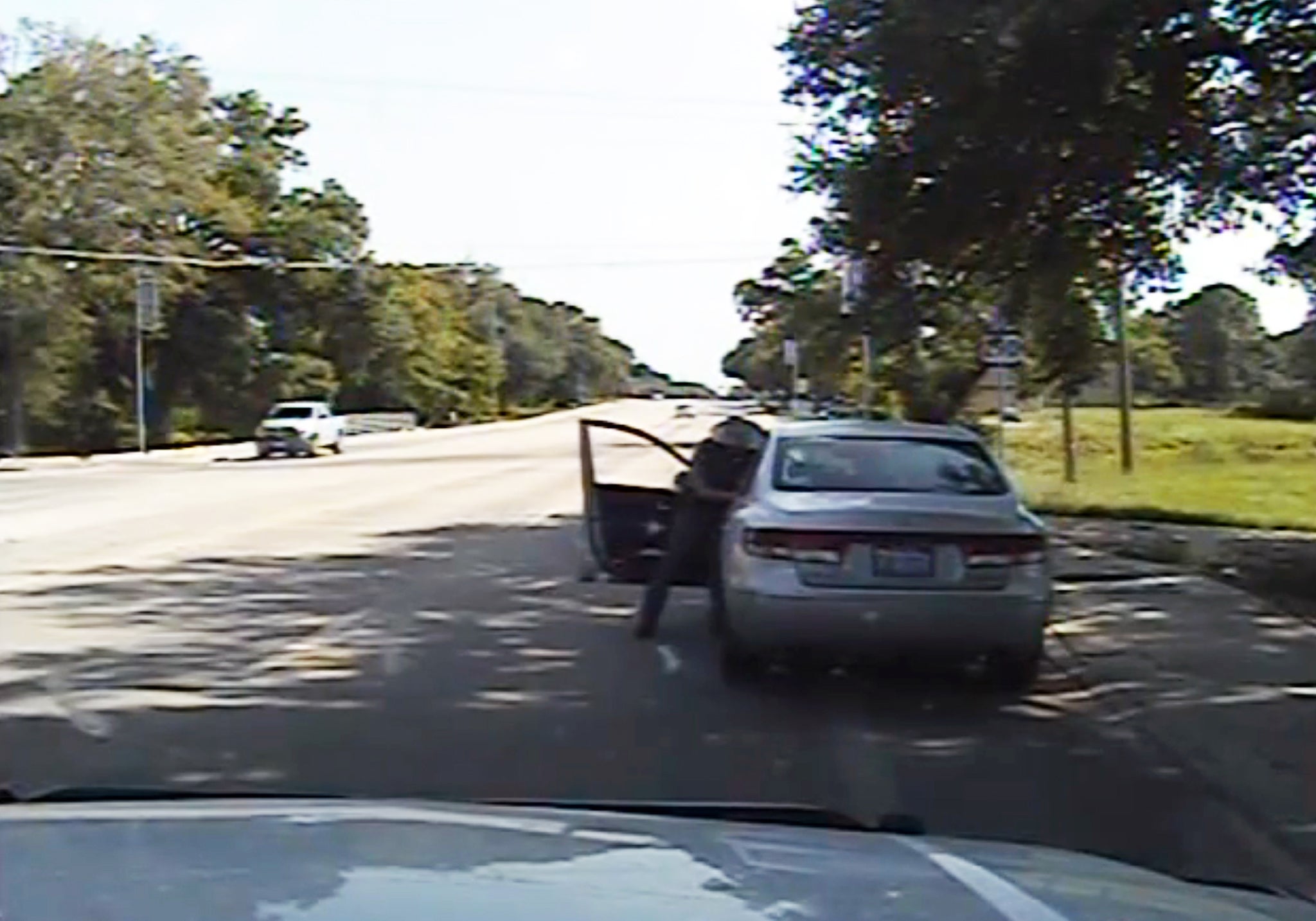Here are your rights during a traffic stop in the United States
Knowing your rights can be the matter of life, death and a multi-million dollar settlement for your loved ones

Your support helps us to tell the story
From reproductive rights to climate change to Big Tech, The Independent is on the ground when the story is developing. Whether it's investigating the financials of Elon Musk's pro-Trump PAC or producing our latest documentary, 'The A Word', which shines a light on the American women fighting for reproductive rights, we know how important it is to parse out the facts from the messaging.
At such a critical moment in US history, we need reporters on the ground. Your donation allows us to keep sending journalists to speak to both sides of the story.
The Independent is trusted by Americans across the entire political spectrum. And unlike many other quality news outlets, we choose not to lock Americans out of our reporting and analysis with paywalls. We believe quality journalism should be available to everyone, paid for by those who can afford it.
Your support makes all the difference.After the controversial death of Sandra Bland, many Americans are concerned with police brutality and knowing their constitutional rights during traffic stops.
Here are tips — from law experts, police officers and those who have been targets of unconstitutional policing — that will hopefully keep you safe and on your way.
You have the right to remain silent:
Jason Williams, a lawyer at the American Civil Liberties Union, wrote in a Time Magazine feature that depending on which state you’re in you may need to identify yourself — but you’re legally permitted to deny making any further statements.
“There are some instances, like during a traffic stop, where you must provide your license, registration, insurance, and name, when asked. And there are some states where you are required to answer basic identifying questions (name and address) by the police.”
“But you’re not required to give a statement beyond that. You can simply say, “‘I choose not to answer that question.’”
The right to refuse consent to a search:
Police need probable cause to search a vehicle, meaning an officer who sees, smells or hears something that may be criminal can perform a search.
“Keep in mind, however, that if the police have probable cause to search your car, or if you’ve been placed under arrest, they can search you, and sometimes your vehicle, whether you give your consent or not,” Attorney Williams wrote.
Minor traffic violations — like a missing front license plate — don’t count as probable cause, but an officer could pull over a driver for one of those violations and observe something suspicious during the stop.
The right to record the interaction:
The New York Police Department issued memos to camera-shy officers in 2014, reminding officers that they cannot legally prevent someone from filming police actions.
“Members of the public are legally allowed to record police interactions. Intentional interference such as blocking or obstructing cameras or ordering the person to cease constitutes censorship and also violates the First Amendment.”
The right to ask permission to leave:
“If they say yes, you should calmly walk — not run — away from the scene,” Attorney Williams said.
These rules are very different if you are a person of colour.
After the controversial death of Sandra Bland, Boston Globe contributor Renée Graham writes that the young woman’s death proves there are different rules for black people and the difference can be lethal.
“Faced with an authority figure unwilling to de-escalate the situation, Bland refused to be bullied or intimidated. She understood her rights, but for African-Americans in encounters with police, the appalling price for asserting even the most basic rights can be their lives.”
Keep your hands visible on the steering wheel:
Video: Cop shoots man reaching for his drivers license
An officer will most likely ask you for identification but you shouldn't be quick to act on their orders.
“Don't start rummaging through your back pocket for your wallet and license, or in your glove compartment for your registration, until the officer asks you for them. For all the officer knows, you could be reaching for a gun,” according to law blog Nolo.com.
Comply now, contest later:
Joe Grubbs is a public information officer at the Bakersfield Police Department. Officer Grubbs told 23ABC News that you should always follow the officer’s commands during a stop and if you ever feel you are being treated unfairly, settle it in court in the future.
The policing of oneself is recognized as “respectability politics.” The idea that marginalized groups should police their own members to be compatible with white mainstream values — rather than challenging the mainstream for its failure to accept minorities.
Eric Broyles, Washington DC attorney and author of “Encounters With Police: A Black Man’s Guide to Survival,” spoke with the Marshall Project on Ms Bland’s death.
“Until we work through some of the cultural issues and training issues in police departments, my objective is to get people home safely. That’s why the theme is ‘comply now, contest later.’ It’s not about leaving an encounter with police without your dignity in place.”
“It’s absolutely the police department and the police system’s responsibility to root out bias, racism, and profiling, 100 percent. But during the time it takes to root that out, over the next 10, 20, 50 years, how many lives are you willing to sacrifice?”
Join our commenting forum
Join thought-provoking conversations, follow other Independent readers and see their replies
Comments